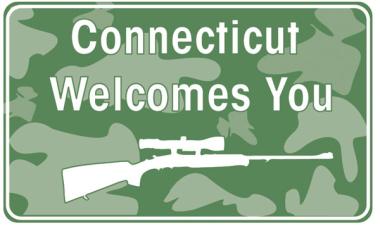Idon't suffer from hoplophobia (a slang term for an irrational and morbid fear of guns). In fact, for purposes of full disclosure, I'll admit that I quite like using guns. I'm a member at the Smith and Wesson Shooting Sports Center in Springfield. I usually shoot a couple hundred rounds a week. I'm in the process of getting my License to Carry and an FID card. Then, finally, I get to buy the Glock I've had my eye on for over a year.
But despite my penchant for the shooting sports, I am not a die-hard NRA member. Nor do I think that just anyone should be allowed to own and use any and all types of guns.
Compared to many states, Massachusetts has fairly strict gun regulations. I agree with most of them (don't get me going on the 10-rounds per magazine limit). I feel secure knowing that anyone who owns a gun in this state has taken some sort of basic training course that explains the fundamentals of firearm use and safety. The 30-day waiting period required for everyone to buy a gun also seems appropriate to me. If someone needs a gun for a hunting trip or a shooting outing, plans can be made accordingly. I find it hard to think of a justifiable reason for someone to be able to walk into a store and purchase a gun on the spot.
A little further south, however, the rules are a bit more lax. In Connecticut, a person can buy a shotgun or rifle without a permit or any training whatsoever, and take possession of the gun after a 14-day waiting period. Due to recent tragic events, that's something hundreds of Connecticut residents will be doing over the next few weeks.
In the wake of a 3 a.m. home invasion in Cheshire that resulted in the murders of a mother and her two daughters (the husband, after being severely beaten, managed to escape from the burning house after the intruders torched it), gun and security system sales in Connecticut, and specifically in New Haven County, have increased dramatically in the past week, according to the New Haven Register. The article quotes several business owners, including Frank Guerra, owner of K-5 Firearms Exchange in Milford, and Robert Mule, owner of Mule Security Systems of Meriden, as saying that business has shot up in the past week—"maybe like 40 percent," according to Mule.
Although amping up existing security systems and installing new ones is an indisputably good way to protect your family, the practice of keeping a gun at home for self-defense purposes is often hotly debated.
In a 1986 New England Journal of Medicine article, "Protection or Peril? An Analysis of Firearm-Related Deaths in the Home," Dr. Arthur Kellerman and Dr. Donald Reay presented the findings of their six-year study of recorded gunshot deaths in King County, Wash. "For every case of self-protection homicide involving a firearm kept in the home, there were 1.3 accidental deaths, 4.6 criminal homicides and 37 suicides involving firearms," wrote Kellerman. This study established the 43 to 1 ratio—a gun in the home is 43 times more likely to be used on friend than foe—that is still often cited by gun control advocates. But many other groups and individuals, including National Review Online columnist Dave Kopel of the Independence Institute, claim Kellerman's findings are flawed.
"Of the gun deaths in the home, the vast majority are suicides," writes Kopel. "In the 43-to-1 figure, suicides account for nearly all the 43 unjustifiable deaths." He goes on to explain that counting a gun suicide as part of the increased risk of keeping a gun in the home is only appropriate if the gun facilitates the suicide, meaning that no gun equals no suicide. He makes the related point that most people intent on taking their own lives are going to find other means to do so if no gun is readily available.
Kopel also asserts that Kellerman and Reay ignored the most important factor in assessing gun risk in the home: whose home the gun is in. It's certainly understandable that the risk of accidental death or injury skyrockets if the gun is in a home of a mentally ill person, a felon or a person prone to self-destructive behavior. Or if the gun is owned by people without proper knowledge of how to store, lock and handle a gun, something that is taught in most basic firearm safety courses.
Which brings us back to that state to the south. Over the next few weeks, as 14-day waiting periods expire all over Connecticut, hundreds, maybe even thousands of unlicensed residents will buy shotguns and rifles and bring them into their homes. Will it take a few gun accidents for lawmakers to rethink their policies? Or will the mass gun frenzy itself be enough for Connecticut officials to realize that maybe a well-armed Connecticut isn't something they're entirely comfortable with?



